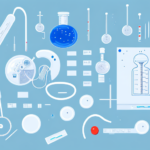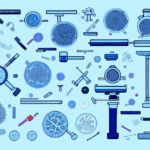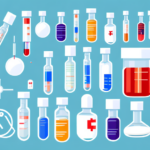Understanding the Importance of Specimen Testing
Specimen testing plays a crucial role in diagnosing medical conditions and determining appropriate treatments. Regular testing can help identify potential diseases early, allowing for faster intervention and improved outcomes. According to the Centers for Disease Control and Prevention (CDC), timely laboratory testing is essential for effective disease management and prevention.
Types of Specimens for Testing
Common Sample Types
Various types of specimens can be collected for laboratory testing, each serving different diagnostic purposes:
- Blood: Used to diagnose infections, monitor cholesterol levels, and assess organ function.
- Urine: Helps identify urinary tract infections, kidney function, and metabolic disorders.
- Saliva: Utilized for hormone testing, genetic testing, and detecting certain infections.
- Stool: Assessed for digestive issues, nutrient absorption, and gastrointestinal infections.
- Tissue Biopsies: Collected to diagnose cancers and other tissue-related conditions.
Additional Specimen Types
Beyond the common samples, laboratories also analyze other specimens to provide comprehensive health assessments:
- Hair and Nails: Detect drug use, exposure to environmental toxins, and certain nutrient deficiencies.
- Breath: Measures levels of gases like carbon monoxide or hydrogen to evaluate metabolic and digestive health.
Choosing the Right Laboratory
Accreditation and Certification
When selecting a laboratory, it's essential to consider its accreditation and certification. Accredited laboratories meet specific quality standards set by organizations such as The College of American Pathologists (CAP). Certification ensures the lab adheres to procedures required for accurate testing.
Turnaround Time and Cost
Another critical factor is the laboratory's turnaround time and cost. According to Lab Tests Online, understanding the expected time frame for results can help reduce anxiety and plan necessary treatments. Additionally, comparing costs and insurance coverage between laboratories can ensure you receive quality testing within your budget.
Customer Service and Accessibility
Good customer service and accessibility are vital for a smooth testing experience. Laboratories should offer clear communication channels, timely updates on sample status, and support in answering any queries you may have.
Preparing and Dropping Off Your Samples
Sample Preparation
Proper preparation of your specimens is essential for accurate results. This may involve fasting, avoiding certain foods or medications, or following specific collection methods as advised by your healthcare provider or the laboratory. The CDC provides guidelines on optimal specimen collection and handling.
Labeling and Documentation
Ensure all samples are correctly labeled with your name, date of birth, and other relevant information. Proper labeling prevents mix-ups and ensures your results are accurately matched to your identity.
Navigating the Drop-Off Process
Being organized during drop-off can enhance efficiency. Prepare any necessary paperwork in advance, bring required identification or insurance information, and adhere to the laboratory's specific drop-off guidelines. If uncertain, contact the laboratory ahead of time for assistance.
Ensuring Accurate Test Results
Following Instructions
Adhering to the laboratory’s instructions is paramount for accurate testing. This includes pre-test requirements like fasting, medication adjustments, or refraining from specific activities. Non-compliance can lead to inaccurate results and may necessitate retesting.
Understanding Test Limitations
While laboratory tests provide valuable insights, it's important to recognize their limitations. False positives and negatives can occur, and some tests may not detect certain conditions. Discussing these limitations with your healthcare provider can provide a clearer understanding of your health status.
Interpreting Your Test Results
Consulting Healthcare Providers
After receiving your test results, consult with your healthcare provider to interpret the data accurately. They can explain what the results mean for your health and suggest any necessary follow-up actions.
Empowering Your Health Decisions
Understanding your test results empowers you to make informed decisions about your lifestyle and healthcare. Whether it involves dietary changes, increased physical activity, or medical treatments, being informed is key to proactive health management.
Special Considerations for COVID-19 Testing
The COVID-19 pandemic has heightened the importance of specimen testing. COVID-19 tests typically involve collecting nasal or oral swabs, which are then analyzed for the presence of the virus. According to the World Health Organization (WHO), following proper collection and handling protocols is essential to minimize false results and ensure safety.
Cost Comparison of Different Laboratory Services
Laboratory testing costs can vary based on the type of test, the laboratory’s pricing structure, and your insurance coverage. It's advisable to compare prices across different laboratories to find the best value. Resources like LabTests.org can help you understand typical costs and what to expect financially.
How to Interpret Third-Party Lab Reports
Third-party lab reports may present results differently compared to primary healthcare providers. It's important to understand normal ranges and what deviations may signify. Resources such as Mayo Clinic offer comprehensive guides on interpreting common lab test results.
Conclusion
Dropping off specimens for testing is a fundamental aspect of maintaining good health. By understanding the importance of testing, selecting the right laboratory, preparing your samples correctly, and interpreting your results accurately, you can take proactive steps towards better health. Always consult with your healthcare provider or the laboratory if you have any questions or concerns about the testing process.






















